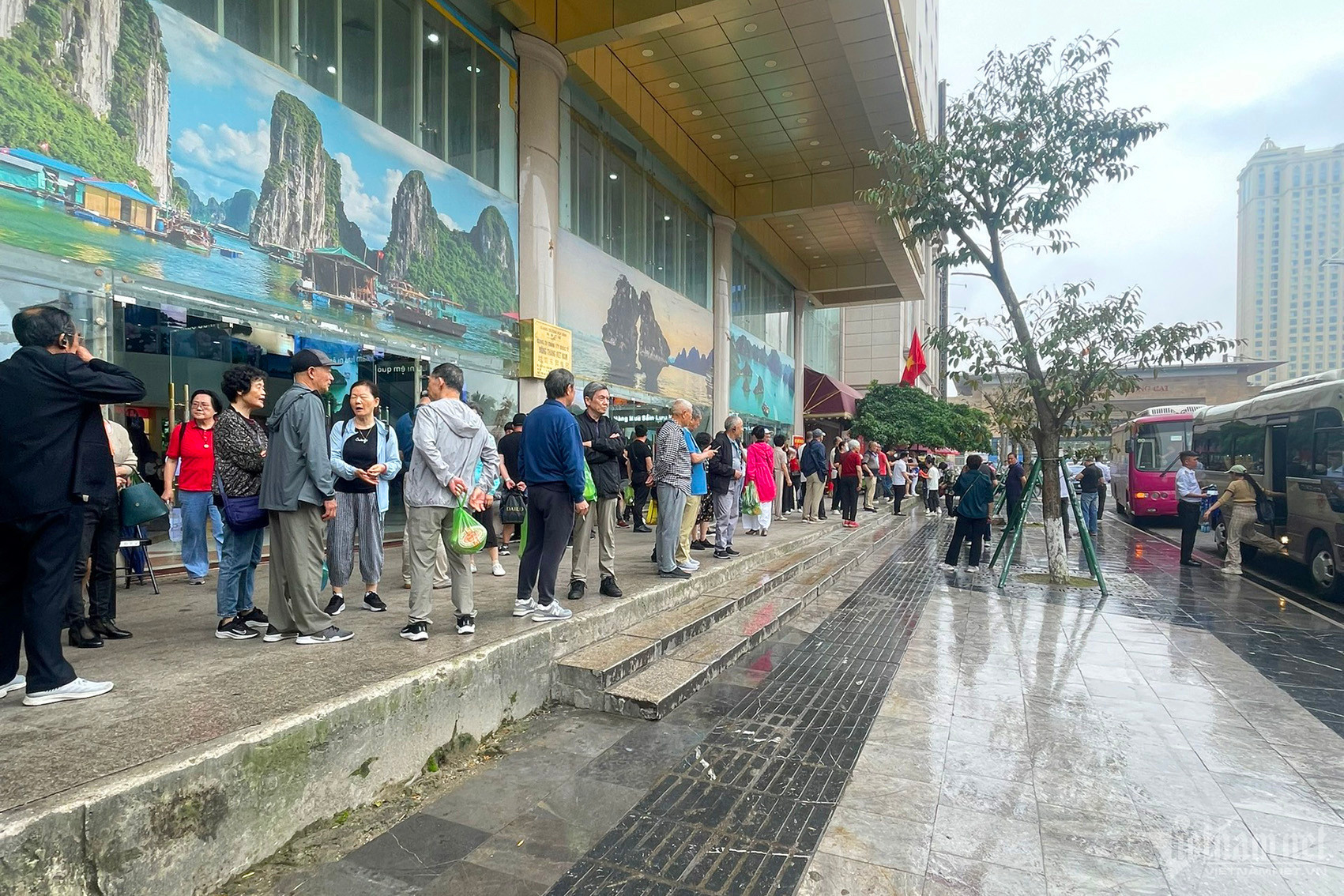
Soon after the Mong Cai Border Gate opened, Chinese travelers began flocking there. Long queues of Chinese, most of them elderly, wait for their turn to follow entry procedures at the border gate.
Often, after fulfilling entry procedures, Chinese travelers get into 45-seat buses to go sightseeing. The buses bring Chinese travelers to shops that sell souvenirs, food, supplements, and sweets with no clear origin.
There are about 10 such shops along Hoa Binh Boulevard in Mong Cai specializing in serving Chinese clients. Vietnamese people are not admitted to the shops. In order to enter the shops, travelers must have a necklace card, and those who don’t have a card will be prevented from entering the shops.
The cards are collected after the visits to the shops end. The staff at the shops are Chinese workers or Vietnamese workers who speak Chinese.
After that, travelers get into the buses again to go to jewelry and fine arts shops. Tours of this kind last one day.
Mong Cai leaders said their big worry now is the comeback of zero-dong tours which appeared in Vietnam 6-7 years ago and seriously affected the tourism environment.
At that time, experts asked local authorities to eliminate the tours immediately, warning that zero-dong tours would be a blight on the country.
Vowing to prevent the development of such tours, Mong Cai plans to set up delegations to take inspection tours to the shops which serve only Chinese travelers. Local agencies will also examine road tourism activities across the Mong Cai International Border Gate.
On March 28, Mong Cai authorities, unannouced, inspected the shops in the city. However, the shops, which were crowded in the morning, were deserted in the afternoon.
The owners of the shops could not show licenses to use Chinese workers and certificates about goods origin. Many displayed products were counterfeited famous brands.
Serious violations were discovered at many inspected shops in Mong Cai, including Dai Duong Quoc Te at No 31 Hoa Binh Boulevard. The shop was found operating as a small mart, selling medicines, jewelry and sweets.
During inspection, a representative of the shop could not show the work permits of the 10 Chinese working there, and a certificate on meeting requirements on fire fighting and control. The products displayed did not have quoted prices, and many products did not have clear origin.
The inspectors stopped the operation of the shop until it can meet requirements.
Dai Duong Quoc Te is just one of a number of shops in the area near the Mong Cai International Border Gate that specialize in serving Chinese travelers.
Zero-dong tours
Low-cost or zero-dollar tours first appeared in Thailand in 1995 and later in Taiwan, Hong Kong, South Korea, Japan, Malaysia and Singapore, and they still exist. The tours are the result of stiff competition among countries, cities, tourism companies and air carriers.
According to the Vietnam National Authority of Tourism (VNAT), for travelers, low-cost tours are ones in which travelers buy tickets for flights, trains, boats and cars; apply for visas, book hotel rooms, and pay tour fees at prices much lower than the real costs that travel firms have to pay. When the prices become low at a certain level, the tours become zero dong tours.
For travel firms, zero-dong tours are ones in which firms receive and serve travelers but don’t collect service fees. They make money by bringing travelers to shops to buy things (at exorbitant prices), or providing additional programs and services at destinations to offset the initial costs for hotels, restaurants, transport and visa fees.
In the worst cases, travelers may be left in Vietnam without notice in advance if travelers do not bring profits, or if travelers refuse to buy things ot refuse to spend money on services at destinations.
This occurred repeatedly before the Covid-19 pandemic, which forced Chinese travelers to seek support from local authorities. There are also reports about Chinese travelers being assaulted by tour guides because the travelers refused to shop as requested.
Pham Cong - Linh Trang